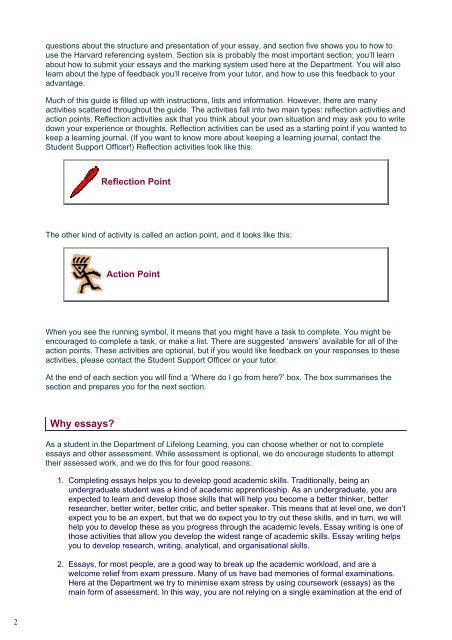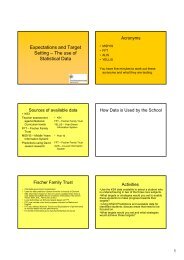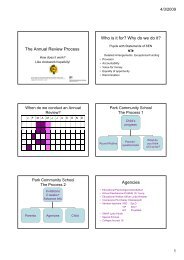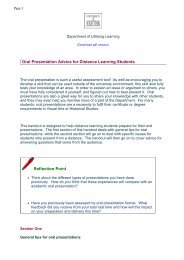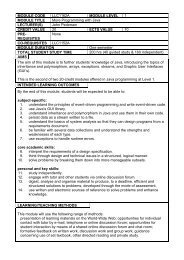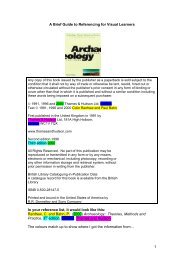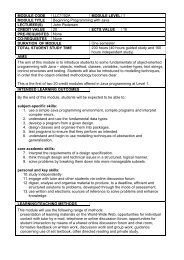DLL Study Skills Series: Essay Writing
DLL Study Skills Series: Essay Writing
DLL Study Skills Series: Essay Writing
Create successful ePaper yourself
Turn your PDF publications into a flip-book with our unique Google optimized e-Paper software.
questions about the structure and presentation of your essay, and section five shows you to how to<br />
use the Harvard referencing system. Section six is probably the most important section; you’ll learn<br />
about how to submit your essays and the marking system used here at the Department. You will also<br />
learn about the type of feedback you’ll receive from your tutor, and how to use this feedback to your<br />
advantage.<br />
Much of this guide is filled up with instructions, lists and information. However, there are many<br />
activities scattered throughout the guide. The activities fall into two main types: reflection activities and<br />
action points. Reflection activities ask that you think about your own situation and may ask you to write<br />
down your experience or thoughts. Reflection activities can be used as a starting point if you wanted to<br />
keep a learning journal. (If you want to know more about keeping a learning journal, contact the<br />
Student Support Officer!) Reflection activities look like this:<br />
Reflection Point<br />
The other kind of activity is called an action point, and it looks like this:<br />
Action Point<br />
When you see the running symbol, it means that you might have a task to complete. You might be<br />
encouraged to complete a task, or make a list. There are suggested ‘answers’ available for all of the<br />
action points. These activities are optional, but if you would like feedback on your responses to these<br />
activities, please contact the Student Support Officer or your tutor.<br />
At the end of each section you will find a ‘Where do I go from here?’ box. The box summarises the<br />
section and prepares you for the next section.<br />
Why essays?<br />
As a student in the Department of Lifelong Learning, you can choose whether or not to complete<br />
essays and other assessment. While assessment is optional, we do encourage students to attempt<br />
their assessed work, and we do this for four good reasons:<br />
1.<br />
2.<br />
Completing essays helps you to develop good academic skills. Traditionally, being an<br />
undergraduate student was a kind of academic apprenticeship. As an undergraduate, you are<br />
expected to learn and develop those skills that will help you become a better thinker, better<br />
researcher, better writer, better critic, and better speaker. This means that at level one, we don’t<br />
expect you to be an expert, but that we do expect you to try out these skills, and in turn, we will<br />
help you to develop these as you progress through the academic levels. <strong>Essay</strong> writing is one of<br />
those activities that allow you develop the widest range of academic skills. <strong>Essay</strong> writing helps<br />
you to develop research, writing, analytical, and organisational skills.<br />
<strong>Essay</strong>s, for most people, are a good way to break up the academic workload, and are a<br />
welcome relief from exam pressure. Many of us have bad memories of formal examinations.<br />
Here at the Department we try to minimise exam stress by using coursework (essays) as the<br />
main form of assessment. In this way, you are not relying on a single examination at the end of<br />
2


